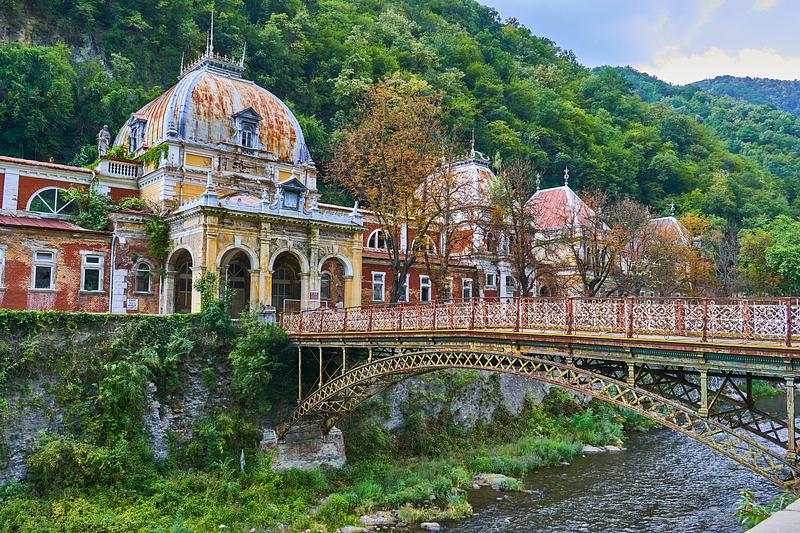Western RO: Neptune Baths listed among Europe's most endangered heritage sites



The Neptune Baths ensemble in the spa resort of Băile Herculane, in western Romania, is on this year's list of the Seven Most Endangered monuments and heritage sites in Europe, announced by Europa Nostra and the European Investment Bank Institute.
The 7 Most Endangered sites for 2022 were selected by the board of Europa Nostra from the 12 sites shortlisted by a panel of international experts.
The selection was made on the basis of the outstanding heritage significance and cultural value of each of the sites and the danger that they are facing. The level of engagement of the local communities and the commitment of public and private stakeholders to saving these sites were considered crucial added values. Another selection criterion was the potential of these sites to act as a catalyst for sustainable socio-economic development and a tool for promoting dialogue within their localities and wider regions.
The ensemble in western Romania is on the list of the most endangered sites alongside Zogu Bridge in Albania; Récollets Convent in Nivelles, Belgium; Garden City La Butte Rouge, near Paris, France; the historic center of Stolberg, Germany; Orléans-Borbón Palace, near Cádiz, Spain; and Crèvecoeur Fortress, Den Bosch, The Netherlands.
The current structure of the Neptune Baths was constructed between 1883 and 1886, according to the plans of the architect Alpár Ignat, as part of the Casino Ensemble, which was designed by the Austrian architect Wilhelm von Doderer. It houses 63 individual bathing or massage rooms and four communal pools.
After the fall of communism in 1989, the historic resort of Băile Herculane was abandoned and fell into decay, with the damage accelerating from 2004 onwards. Despite being labeled a Class A monument, the Neptune Baths have suffered continuous further degradation, because of water infiltrations and poor interventions. Two of its structural walls and a roof collapsed in 2019. A series of temporary interventions were carried out under the coordination of a team of volunteers from the Locus Association, with the support of civil society, but the building continues to degrade.
The Timişoara-based NGO Locus Association, which nominated the site for inclusion in Europa Nostra's program, was set up in 2017 by volunteer architecture professionals and young graduates with the aim of saving the historic thermal spa complex under the platform called Herculane Project.
(Photo: Ovidiu Ghitulescu | Dreamstime.com)
simona@romania-insider.com